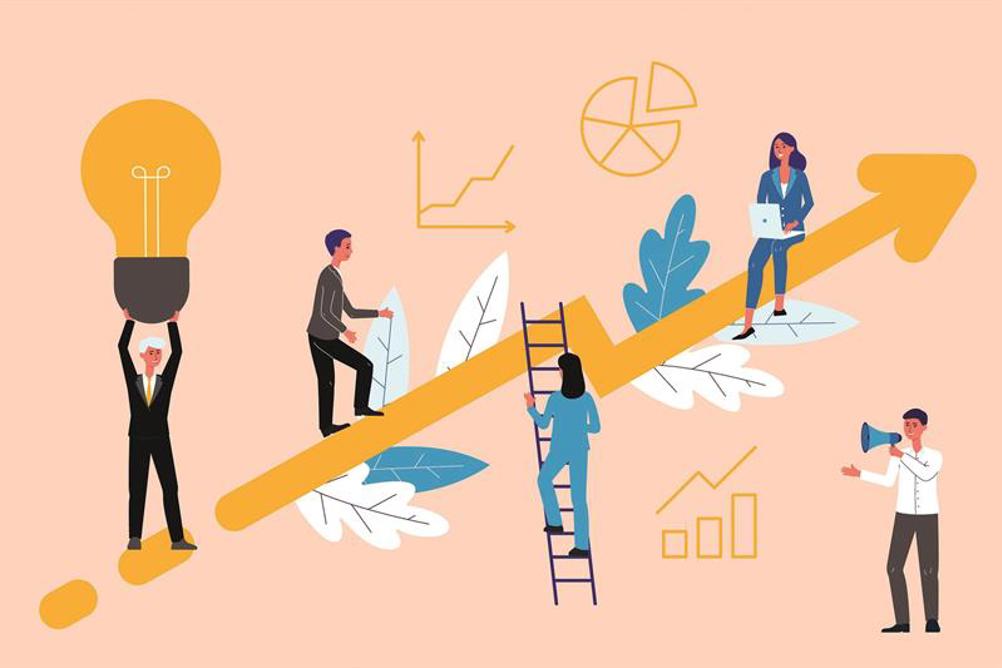
Are you struggling to know what to do next or thinking of making a change? Perhaps, at the back of your mind you are thinking about changing your role or getting a new qualification. You may need to get more patients through the door, or be unsure of what new equipment to buy and whether you can even afford it. Maybe you are considering selling your practice and face the question of when would be the best time? We all know those seemingly impossible, difficult decisions that we sit on because we just do not know what to do.
Do you want to be able to have better conversations, make better business decisions and have realistic plans to achieve them? What if I told you that you could have someone to talk to who could help you succeed quicker, feel much more confident and really thrive?
Optometrist business owners Nasir and Ameerah Ahmed said in part one (Optician 26.08.22), that coaching was ‘the best investment of time and money’ after a course of six integrated coaching and mentoring sessions.
Is it time to think about coaching?
As a busy practitioner, how often do you make the time to really think through matters that will often be life-changing, personal or vital to the business? It is only through creating dedicated space that you can fully analyse your situations, order and re-frame your thinking and move forward at pace on the things that really matter to you and your business.
Many optometrists run their own practices without any formal business training and development. It is, therefore, entirely understandable that, for many, making decisions, such as buying expensive equipment or navigating staffing issues, are tough.
Optometrists, just like other professionals, face changes, challenges and key decisions and this climate is not going away, with the recent General Optical Council call for evidence signalling potentially a major change of agenda for the profession going forwards. In other professions, qualified coaches are seen as valuable assets in supporting people to face and change, helping them make sense of it and work logically through decisions so that clarity is reached as they plan. After their recent experience of coaching, Nasir and Ameerah were left wondering why it is so scarcely used in this profession.
What is coaching?
Coaching supports us to change and develop so we can achieve our goals. It unlocks our potential. Good coaches provide the space, tools and motivation to support us to work through our situation, so that we gain a clearer understanding of where we are going and how to get there. They also recognise that it is often our mindset– ‘no, I can’t afford that equipment,’ ‘I can’t do that’ – that stops us making progress and unlocking that can be the trigger to great progress. Mentoring is not coaching. It differs from coaching in that it is about adding value through the mentor’s insight and knowledge.
What can I expect?
Coaching relationships are time-limited with contracts usually lasting between three to eight sessions, with a session lasting between one and two hours. The conversations are focused on the positive, confidential, non-judgemental, stretching and enlightening. A lot of coaching these days is online, although many clients like some in-person sessions.
Finding the right coach
Coaching is a word that is often used casually and erroneously and yet it refers to a formal discipline. The coaching industry is currently unregulated and growing fast, so finding the right coach for you is very important. Look out for a recognised coaching qualification and membership of a professional coaching body, including Association for Coaching (AC), European Mentoring and Coaching Council (EMCC) or International Coaching Federation (ICF). This will ensure you know that they will be working to a professional framework. The fee for coaching differs widely and is strongly influenced by the experience and brand of the coach. The ICF Global survey in 2012 concluded the average fee was around £175 per hour.
Having rapport with your coach is vital to successful coaching. The first step is to have what is known in the coaching profession as a ‘chemistry call’. Without any commitment and with no fee attached, this enables you to have an in-person or online opportunity to get to know one or more coaches better and consider their style and approach in relation to your needs. It is important that you feel that you can be honest and open with your coach and that they will be committed to you as a client, supportive and able to successfully work with you to address your goal.
‘It’s the best thing you can do for your business’ concluded Nasir after their programme of coaching.
- For more information email sue@sue browning.co.uk.

